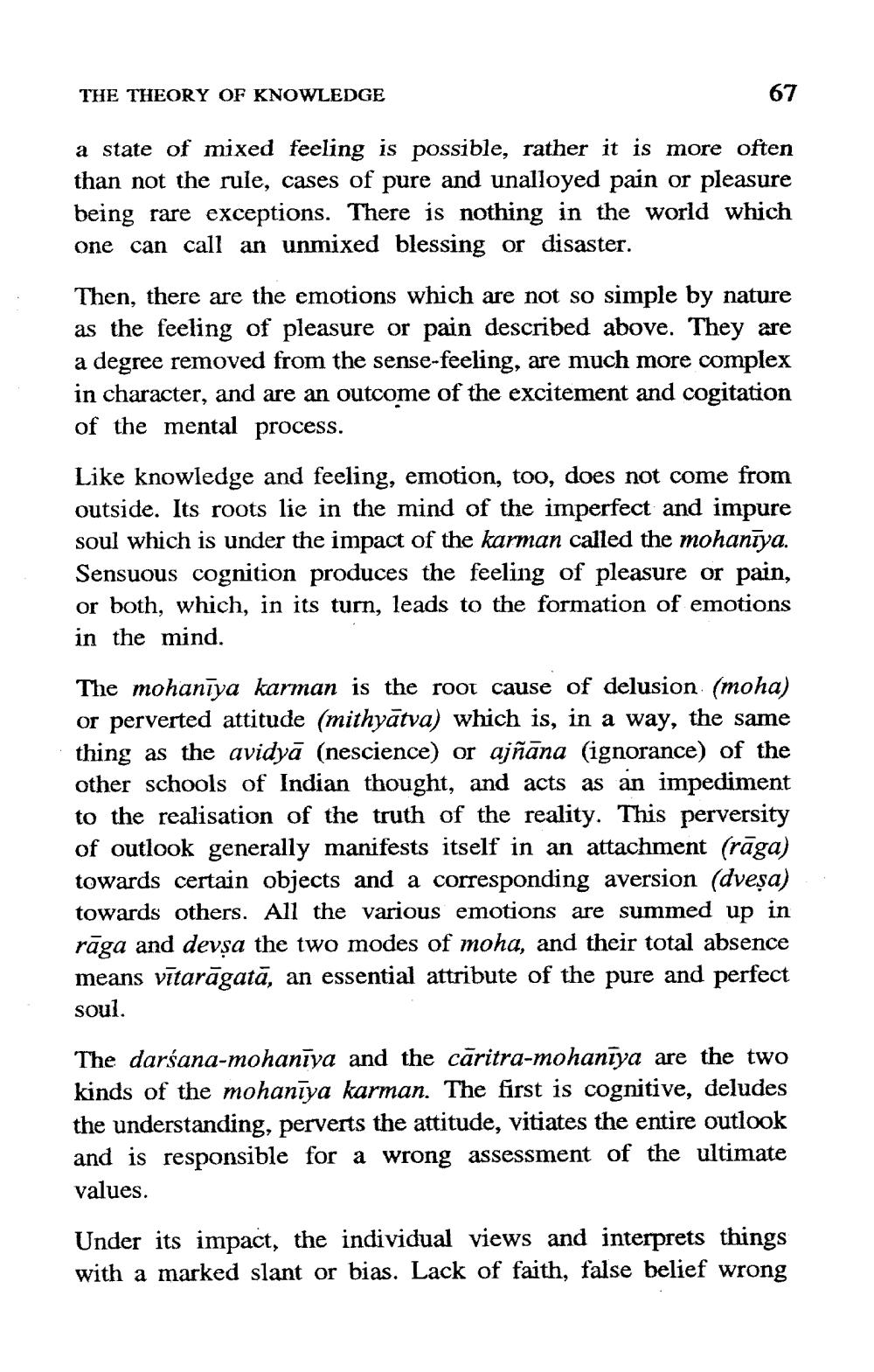________________
THE THEORY OF KNOWLEDGE
67
a state of mixed feeling is possible, rather it is more often than not the rule, cases of pure and unalloyed pain or pleasure being rare exceptions. There is nothing in the world which one can call an unmixed blessing or disaster.
Then, there are the emotions which are not so simple by nature as the feeling of pleasure or pain described above. They are a degree removed from the sense-feeling, are much more complex in character, and are an outcome of the excitement and cogitation of the mental process.
Like knowledge and feeling, emotion, too, does not come from outside. Its roots lie in the mind of the imperfect and impure soul which is under the impact of the karman called the mohanīya. Sensuous cognition produces the feeling of pleasure or pain, or both, which, in its turn, leads to the formation of emotions in the mind.
The mohanīya karman is the root cause of delusion (moha) or perverted attitude (mithyātva) which is, in a way, the same thing as the avidyā (nescience) or ajñāna (ignorance) of the other schools of Indian thought, and acts as an impediment to the realisation of the truth of the reality. This perversity of outlook generally manifests itself in an attachment (rāga) towards certain objects and a corresponding aversion (dveșa) towards others. All the various emotions are summed up in rāga and devșa the two modes of moha, and their total absence means vītarāgată, an essential attribute of the pure and perfect soul.
The darśana-mohanīya and the cāritra-mohaniya are the two kinds of the mohanīya karman. The first is cognitive, deludes the understanding, perverts the attitude, vitiates the entire outlook and is responsible for a wrong assessment of the ultimate values.
Under its impact, the individual views and interprets things with a marked slant or bias. Lack of faith, false belief wrong




